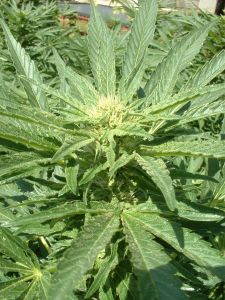Colorado Rakes in Tax Revenue From Legalized Marijuana Sales – Exceeds Expectations
Everyone knew that legalizing marijuana in Colorado would lead to substantial tax revenue but the full scope of revenue was hard to predict.

Based on the first few months of legalization, our marijuana lawyers know that expectations have been exceeded.
A recent proposal outlined the amount of revenue and expenditures tied to the legalization of marijuana. The numbers are, to say the least, staggering.
Colorado Governor has outlined a plan to spend approximately $99 million over the course of the next fiscal year on substance abuse programs, and prevention measures for young people as well as other related programs.
$99 million is a big number but it is less than 20% of the total revenue Colorado expects to bring in via taxing marijuana sales. The total estimated tax revenue from cannabis sales is roughly $610 million over the course of the next fiscal year.
Colorado is taxing recreational marijuana sales at 12.9 percent and has been doing so since retail sales started at the beginning of January 2014. Exact sales numbers are hard to pin down and have not been made public yet but should be released soon.
Recreational marijuana sales are taxed at a rate of 12.9 percent while medicinal cannabis is taxed at a much lower 2.9 percent. In addition to the sales tax revenue, the governor’s office has predicted excise taxes to generate some $98 million in revenue (significantly higher than earlier estimates of about $70 million).
The governor announced that a major priority for Colorado is to head off any uptick in the use of marijuana by children and teenagers that may otherwise result from the legalization of recreational marijuana for adults over the age of 21.
The spending plan has set aside over $45 million for programs specifically for that purpose and another $40 million for substance abuse treatment. In addition, about $12 million has been earmarked for public health programs.
Other programs include a “Drive High, Get a DUI” campaign that will spread the word about the state’s regulations regarding driving while under the influence of marijuana – that program is expected to cost about $1.9 million.
Tax revenue resulting from marijuana will not only be used for marijuana related programs but will also be used to supplement unrelated budgets in the state. One example is that about $40 million is set aside for school construction.
Washington state also legalized recreational marijuana use at the beginning of 2014 but recreational sales will not begin until later this year. The hope is that tax revenue exceeds expectations there as well.
State legislators and voters throughout the country are carefully watching what happens in Colorado and Washington state to see how that legalization of recreational marijuana sales affects the states.
The CANNABIS LAW Group represents growers, dispensaries, collectives, patients and those facing marijuana charges. Call us at 949-375-4734.
More Blog Entries:
President’s Position on Marijuana vs Alcohol, February 15, 2014, Los Angeles Marijuana Lawyer Blog
United States Marijuana Laws Influencing Other Countries, February 14, 2014, Los Angeles Marijuana Lawyer Blog
Additional Resources:
Colorado’s pot tax revenue much higher than expected, Feb. 20, 2014, Greg Campbell, The Daily Caller
 Cannabis Law Group's Medical Marijuana Legal Blog
Cannabis Law Group's Medical Marijuana Legal Blog




